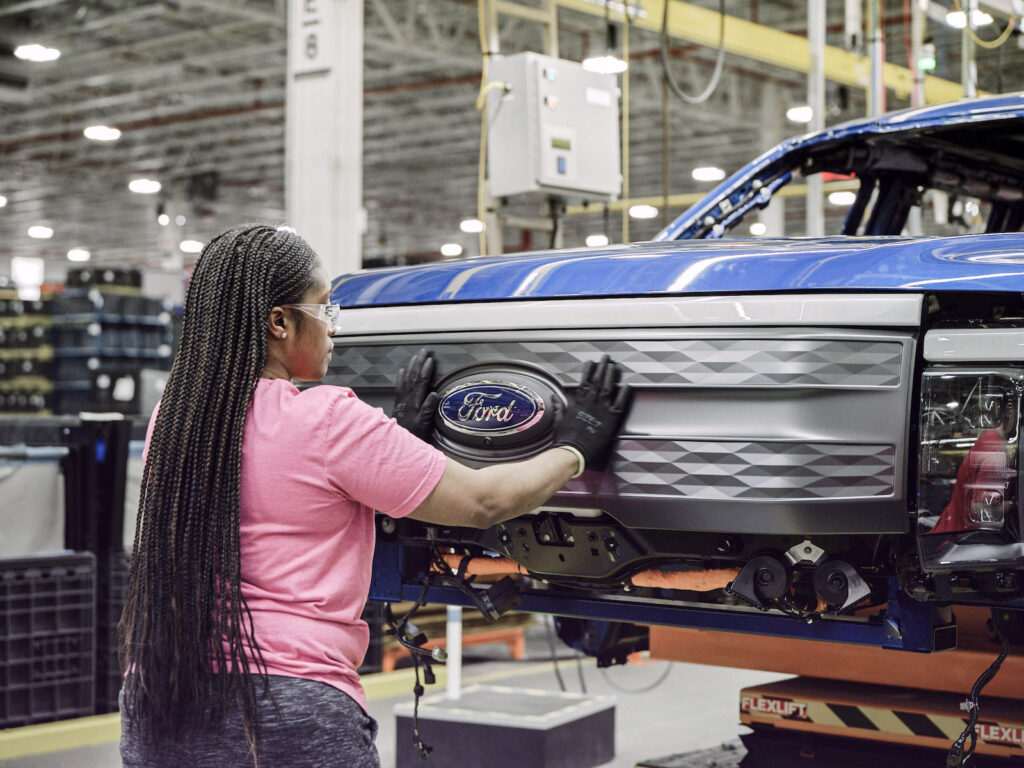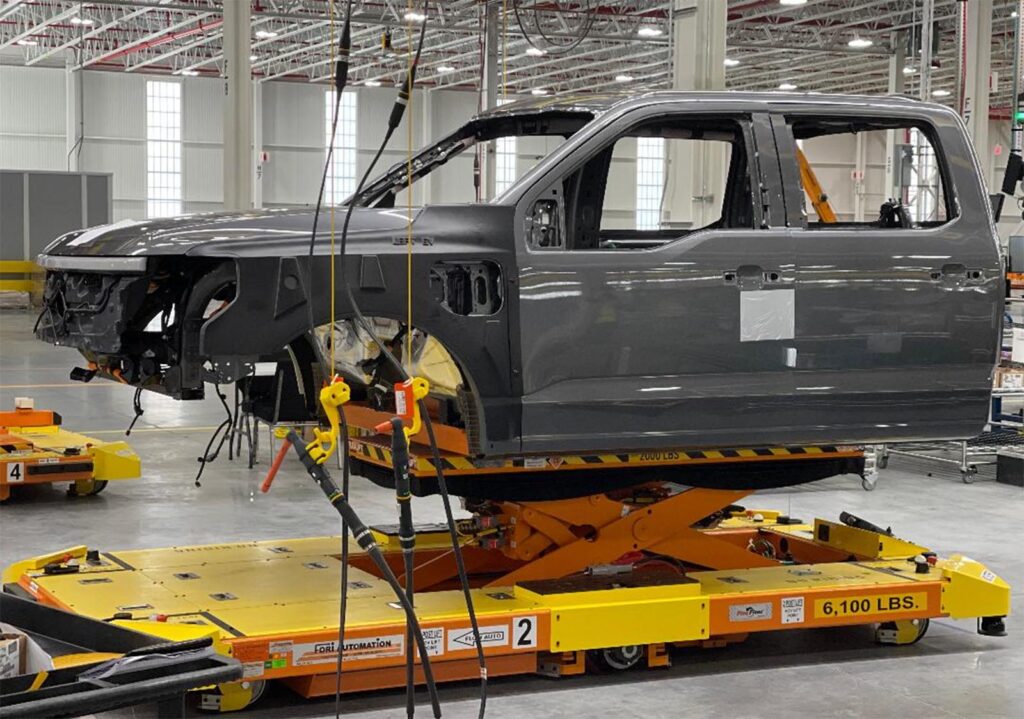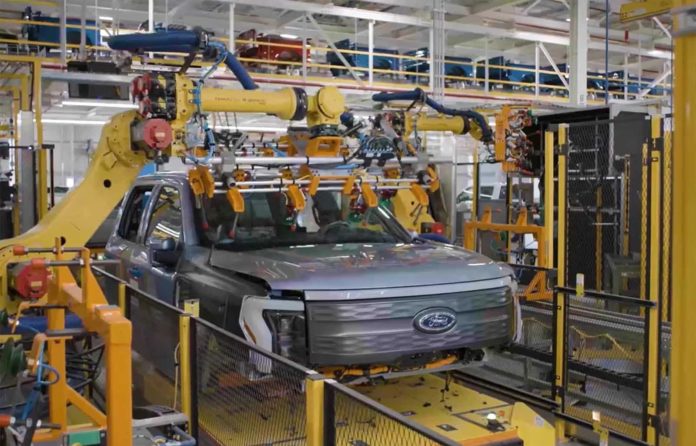Ford put a temporary hold on production of the all-electric F-150 Lightning pickup because of a possible battery problem, the automaker confirmed Tuesday.
The news comes just a day after Ford announced plans for a $3.5 billion battery plant to go into Marshall, Michigan. The facility will produce a lower-cost version of lithium-ion batteries that will be used for base models of the Lightning and Ford’s other EV, the Mustang Mach-E. A high-performance battery may also be added to the mix, officials revealed on Monday.
“We’re holding (both production and shipment) of vehicles while we investigate” the problem, spokesperson Emma Berg told TheDetroitBureau.com. “The team is conducting a cause analysis.”
High demand, low supply
She declined to discuss the specific problem that led to the halt of production. She also noted there has been no “stop-sale” order issued. That means dealers can continue selling and delivering vehicles they already have on hand.
Considering the long backlog of orders, any delay in production of the Lightning could be problematic for both Ford and its dealers.
The automaker originally anticipated relatively light demand for the all-electric truck, tooling up a new facility at a manufacturing complex in the Detroit suburbs to produce just 25,000 annually. It began taking reservations online in May 2020 and CEO Jim Farley reported having around 200,000 by the time it closed the reservation line the following December.

An expansion of the Rouge Electric Vehicle Center is expected to boost annually capacity to around 150,000 of the trucks. Even then, it will take until sometime in 2024 to meet just the original demand, Darren Palmer, Ford vice president of Electric Vehicle Programs, told TheDetroitBureau.com late last year.
Ongoing production challenges
Though Ford has not revealed the cause of the current delay it has had an uneven run since production started last spring. The shortage of semiconductors has been an ongoing headache, according to Palmer and other Ford sources. The automaker has also adjusted, even briefly halted, production to address various quality issues.
Palmer has repeatedly stressed the desire to minimize problems with the electric pickup once in customers’ hands, acknowledging the potential issues defects could cause to Lightning’s image.
Ford is currently the second-largest seller of EVs in the U.S., delivering more than 66,000 Mach-Es and Lightnings worldwide in 2022 — despite being having limited capacity. It is targeting a roughly 900% increase in its annual run rate to 600,000 units this year, and 2 million in 2026.
Ford adding new, low-cost battery technology

To help boost demand and to bring down the cost of its EVs, Ford is working on ways to break production bottlenecks while also lowering the price of its batteries — the single largest cost of today’s electric vehicles.
The automaker on Monday announced it will open the $3.5 billion plant in Marshall, which is a little more than 100 miles west of Detroit. It will license technology from China’s CATL, one of the world’s largest EV battery manufacturers. The factory will focus on LFP, or lithium-iron-phosphate, batteries which are significantly less expensive to build than the NCM, or nickel-cobalt-manganese, cells currently used by Ford and many other manufacturers.
While LFP batteries offer slightly shorter range than the current technology, they are appropriate for base models, Ford officials explained, adding that they can help the automaker drop prices to attract entry-level customers.
Price parity
The company declined to discuss specific prices, but an analyst with Guidehouse Insights told TheDetroitBureau.com on Monday that, with incentives contained in the federal Inflation Reduction Act, domestically produced LFP batteries could drop to below $75 per kilowatt-hour. That figure is widely considered the point at which automakers can sell EVs at a price parity with gas-powered vehicles and still make a profit.
“I can’t answer” specific cost details, Ford Chairman Bill Ford said during a news conference on Monday, noting “(t)hat’s where LFP really is going to help us … from an affordability standpoint. Ultimately, it’ll make us more affordable.”
High-performance battery also in the works
The new Michigan battery plant won’t go into operation until 2026, but Ford will begin importing LFP batteries from China in the meantime. The first will be used in versions of the Mach-E starting later this year. The Lightning will add a base LFP-powered package next year.
In a briefing on battery technology later on Monday, Ford officials also dropped hints they are working on new battery technology that could yield significantly higher energy density — the amount of power that can be stored within an individual cell. That would permit both longer range and higher performance, they said, without providing a timeline for the launch of such new battery technology.

